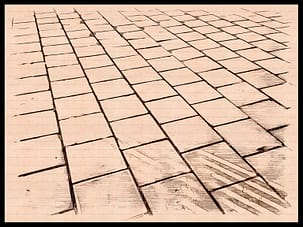
Rise of the Internet Society
There has been a subtle and profound change in the nature of relationships between people within society. I want to talk briefly about how this may be affecting us as people; essentially what the rise of the internet society and use of social media means for the likes of me and you.
The changes in societal makeup have been progressing gradually for hundreds of years but the pace is now accelerating. Almost all societies initially involved primary relationships which were embodied in families and communities. Widescale industrialization and later consumerism changed the way people identified as individuals and more importantly the way they came to think about others that they are socially related to.
In a sense, human relationships evolved to become secondary relationships, made through association. People came into contact with so many other people who they associated with but had no personal connection to so the very concepts of selfhood changed. Viewed in the collective, people were separated into entire social strata, or in a certain analysis, classes.
To explain further, we once ascribed social value to people based on their family and standing within the community. As association based relationships came to prominence, the concepts of differentiation (like social class) crystallized in the social milieu. Class-based ideas helped people understand their place within society and easily ascribe a value or significance to others. Even if people were unable to articulate it in those terms the prevailing social structure of post-industrial society tended to be greatly stratified.
A Snapshot of Curated Perfection
Nowadays, there is a relatively new dominant pattern which is built on tertiary relationships. These are what Barry Wellman posits as ‘personalized communities’ embodied through internet enabled networks. He describes these networks as ‘me-centred’ and this can be seen as one of the driving forces of psycho-social change. As all who use it know, the access to knowledge and entertainment provided by the internet is empowering. By establishing networks of support for identities, people are changing the way that they ascribe worth to themselves and others, with a consequent effect on human relationships.
Those of us who choose to use social media become curators of our own stories. We pick and choose which life events to share with our friends/followers/connections based on the desired interpretation. More often than not we curate a positive timeline, an image of happiness and success, variety, and indulgence in the good things life has to offer. Although sometimes relayed, we mostly conceal the bad news, the domestic fights, the mishaps, the chores of day-to-day living. Much of the information we receive about the lives of others is a snapshot of curated perfection.
So, for the most part, there exists this collective fantasy online that life is not what you are experiencing, that it is something better, and I think this is harmful. I don’t for one minute suggest that we fill up our social feeds with the mundane and miserable, pictures of hoovering carpets or stories of insomnia. I do however think that we need to find a way to tone down the hype, to be aware of the reality behind onscreen images and text, and to do more offline reaching out. The danger of not doing so is we become deluded on an unimaginable scale, potentially always comparing ourselves to a kind of hyper-reality.
A Final Thought
If you are reading this post, then probably, like me you live in the internet society. In a sort of prediction of the processes outlined above, Manuel Castells claimed in 2001 that there exists a new pattern of sociability based on individualism. We will most likely all experience this going forward but if we can work together on strengthening the original family and community bonds then it might not be all bad.
This content is also available in video format.
Pingback: On Digital Rights and Societal Change: The Great Hack - CamZhu
Pingback: Forgoing Facebook's Offerings: Reducing my Digital Footprint - CamZhu